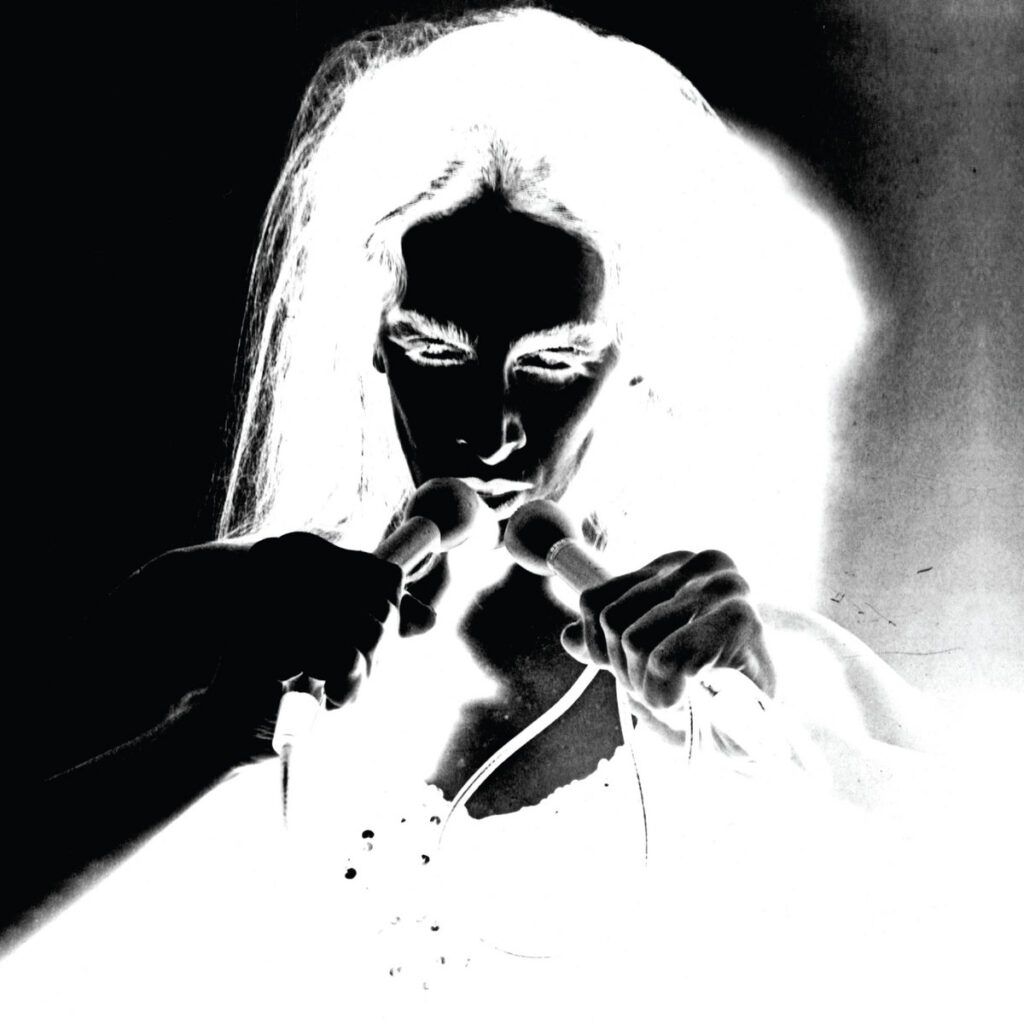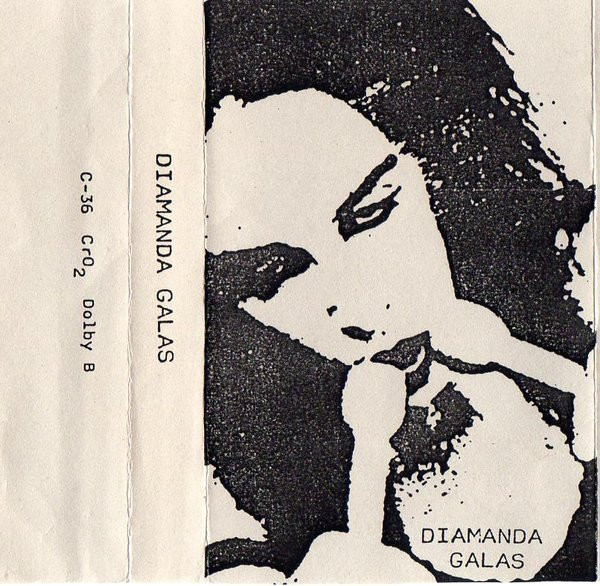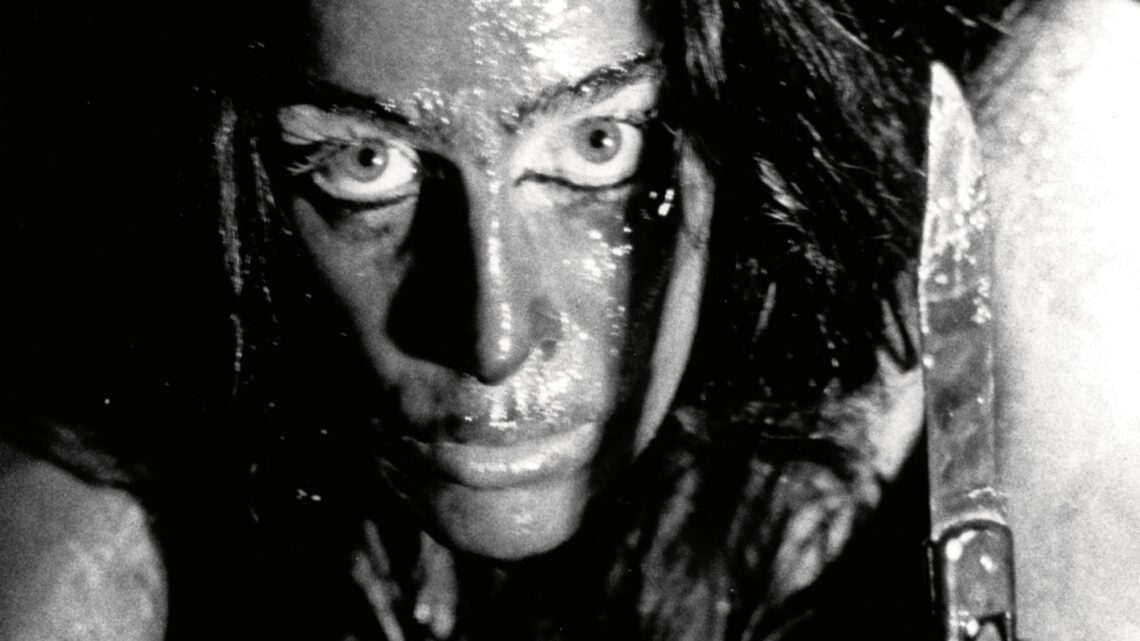
Diamanda Galas – Diamanda Galas (Vinyl, LP)
Label: Intravenal Sound Operations / 881626611111
Format: Vinyl, LP, reissue
Style: Experimental
Year: 2021
/// SOLD OUT ///
Diamanda Galás’ second album is sometimes referred to as Panoptikon (the composition on the A-side of the album). The album consists of two pieces: ‘Panoptikon’, which was inspired by Jack Henry Abbott, whose 1981 autobiographical book In the Belly of the Beast chronicled his experiences in the prison system, and ‘ΤΡΑΓΟΥΔΙ ΑΠΟ ΤΟ ΑΙΜΑ ΤΩΝ ΔΟΛΟΦΟΝΗΜΕΝΩΝ ‘ (‘Song from the Blood of Those Murdered’), a work dedicated to the political prisoners who were tortured and executed during the 1967-74 Greek military junta. The album, originally released on the label Metalanguage (founded by Henry Kaiser and Larry Ochs in 1978), has long been out of print.
From original liner notes by Richard Zvonar (edited by Galás 2021):
PANOPTIKON is a cry of rage by a caged prisoner against his jailer, who is concealed from his victims by an impenetrable wall of technology. The title of the work derives from a design for a new kind of prison, proposed in 1843 by Jeremy Bentham. This edifice consisted of a central observation tower, ringed by multiple tiers of cells. Each prisoner could be kept under continual observation by his keepers, yet he would see neither them nor his fellow inmates. Such a polarization of power, manifested through architectural constraint and omnipresent surveillance, would leave an indelible mark upon the victim, even after release. In Galás’ piece, the architecture of the Panoptikon is a model for the architecture of the performance work. The observation tower is aurally present as a continuous pulse, placed behind the audience and in opposition to the performer/victim through whose ranting can be seen the progressive psychosis of one buried alive. The walls of his prison become increasingly monolithic as layer upon layer of sound is built up around him – each one a transformation of the sound of her voice.
SONG FROM THE BLOOD OF THOSE MURDERED (ΤΡΑΓΟΥΔΙ ΑΠΟ ΤΟ ΑΙΜΑ ΤΩΝ ΔΟΛΟΦΟΝΗΜΕΝΩΝ) is as ancient as the hills of Greece. There is a tradition among the women of the Maniates, from whom Galás is descended, of spontaneous and ecstatic lament on the death of one of their people. This is especially associated with blood-feud among the villages, the tradition of vendetta. SONG FROM THE BLOOD OF THOSE MURDERED is dedicated to the victims of the Greek junta, those tortured and killed during the dictatorship of 1967-74. The power of the piece is drawn from the blood-soaked earth. It is channeled through the witch/shaman persona of Galás. As the piece progresses, one experiences the rage and grief of the victims’ kin, the invocation of the goddess, the swearing of vengeance and casting of the curse. Whereas the many voices of SONG FROM THE BLOOD OF THOSE MURDERED are raised with a common purpose, the single performer of PANOPTIKON is diffracted into a multiplicity of personalities, often in conflict with each other. The opposition between these characters, with their distinctive emotive states, modes of vocal production and manner of declamation is further underscored by the use of contrasting electronic signal processing and spatial distribution.
Side A recorded Feb., 1984 at 1750 Arch Studios, Berkeley, CA
Side B recorded Oct., 1981 by Ed Herrmann at KOPN, Columbia, Missouri, on the Ionizations Concert Series with funding from the National Endowment for the Arts & Missouri Arts Council



